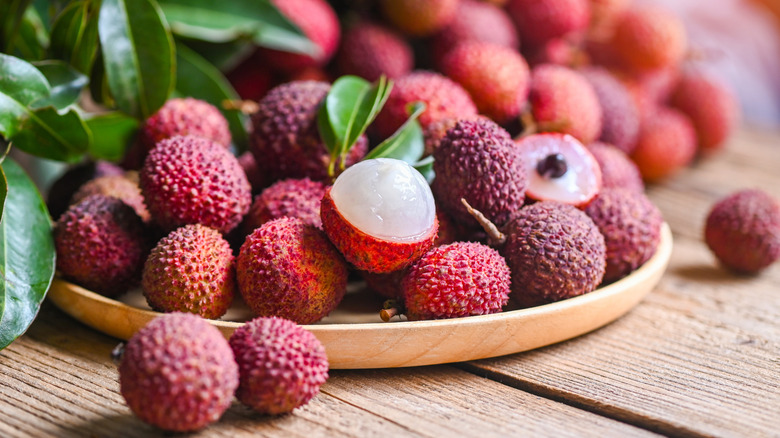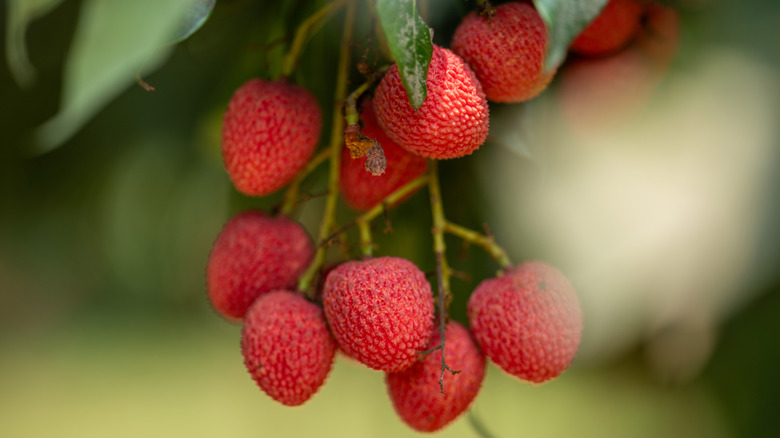Is It Dangerous To Eat Lychee Seeds?
Lychee is a tree fruit with a floral flavor that is native to Southeast Asia. It's a member of the soapberry family and is one of many unique fruits that are difficult to find in most grocery stores. Asian ethnic markets are your best bet for sourcing ripe lychees, but it's also available canned, dried, and as a powder. Lychee berries can be eaten fresh and are an ingredient in many Asian desserts, fruit salads, and ice creams — it's even a hard seltzer flavor. The lychee fruit is packed with nutritional benefits, including vitamin C, which aids your body's ability to fight off infections, improves skin appearance, and helps your body use iron in food.
Lychee fruit contains antioxidants like flavonoids and polyphenols that attach to free radicals and lower inflammation. It is also a good source of fiber, which supports digestive health. Though lychee fruit is safe to eat it's important to make sure the berries are ripe before consuming it. A ripe lychee is bright red in appearance and soft to the touch. The colorful exterior must be peeled off before consuming, and the white jelly-like fruit inside should be pitted. The seeds of the lychee fruit are hard and inedible. They also contain a concentrated amount of toxic compounds called hypoglycin-A and methylene cyclopropyl-glycin, both of which can have a deadly effect on blood sugar levels.
Lychee seeds can cause extreme low blood sugar
Hypoglycin-A is found in lower concentrations in the fruit compared with the seeds. Along with other compounds in lychee fruit, this chemical restricts the body's ability to maintain a normal blood sugar range, leading to hypoglycemia (low blood sugar). In rare cases, particularly when consumed in large quantities, hypoglycin-A can lead to severe hypoglycemia which includes symptoms such as vomiting, seizures, and even coma. The condition is so prevalent that it is a public health concern in areas where children are malnourished and where lychee trees grow in abundance.
When lychees are eaten in large amounts on an empty stomach, the combination of low blood sugar from malnutrition and consumption of hypoglycin-A can be fatal. Lychee seeds are also very difficult to digest, and eating them could cause some discomfort, such as bloating or upset stomach. Unripe lychee fruit should also not be eaten as the levels of toxic compounds in the fruit decrease as it ripens. Overall, lychee is a delicious fruit to add to your diet as long as you discard the seeds and enjoy the ripe berries in moderation.

